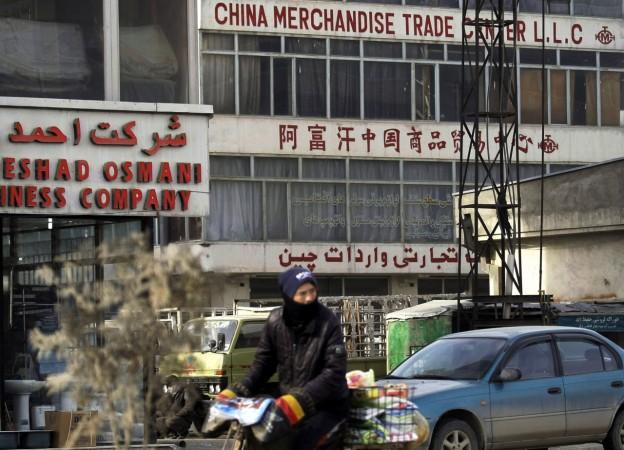China ups presence in Afghanistan as U.S. withdraws
Afghanistan’s President Hamid Karzai, center right, attends a bilateral meeting with then-Chinese President Hu Jintao, center left, at the Great Hall of the People in Beijing June 8, 2012. Hu told his Karzai on Friday that China will provide “si
President Barack Obama and Chinese President Xi Jinping met in California on Friday and while cybersecurity, trade and North Korea were expected to come up, one topic that wasn’t expected to be a focus was Afghanistan.
But, as the U.S. continues its phased military withdrawal, China is ramping up its diplomatic and business presence in its geographic neighbor. The countries share an awkward, 46-mile border.
Two of the biggest Chinese state-owned enterprises won a contract from the Afghan government to build the world’s largest copper mine at Mes Aynak, a site 25 miles southeast of Kabul, says Alexandros Petersen, author of “The World Island: Eurasian Geopolitics and the Fate of the West.” China, in 2007, signed the deal, valued at more than $3 billion — the biggest foreign investment in history. Afghanistan’s finance minister, Omar Zakhilwal, said the project could bring $300 million a year to the government by 2016, according to a 2012 New York Times article.
And yet, today, the project has yet to be completed.
For an explanation, some point to the large number of ancient Buddha statues at the site that mining operation would threaten and the corresponding preservation effort.
Others, like Petersen in a recent piece for The Atlantic, say the company’s real concern is safety — militant groups have attacked the site 19 times in the past year.
The southern and eastern parts of the country are considered more volatile than the North, which has long been considered more stable, Petersen said.
In the north, the Chinese National Petroleum Corportation, another state-owned company, has recently invested in three separate oil sites.
But there are other signs of progress. China has expanded the staff at the Chinese embassy and at Kabul University’s Confucius Institute.
All this involvement by the Chinese is welcomed by Afghan officials, Petersen said, but not as much by the locals.
He said an “old ethnic Uzbek” told him “First we had the Russians trying to take over. Then the Americans came. Now they are leaving, the Chinese are coming, and I think they have plans for a base.”
We want to hear your feedback so we can keep improving our website, theworld.org. Please fill out this quick survey and let us know your thoughts (your answers will be anonymous). Thanks for your time!
